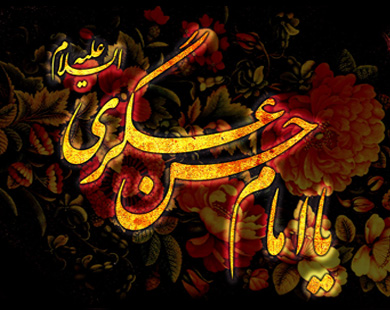His father died in 254. A.H. (868 AD) when he was twenty-two. Four months before
his death, the father declared his son to be his successor and executor of his
will, asking his followers to bear witness to the fact. Thus the
responsibilities of Imamate were vested upon him which he fulfilled even in the
face of great difficulties and hostile environment.
In the early days of his imamate, Al-Mu'tassam Al-Abbasi was the caliph. When
the latter was deposed, he was succeeded by al-Muhtadi. After his brief reign of
only eleven months and one week, al-Mu'tamad came to the throne. During their
regimes, Imam Hasan al-Askari (A.S.) did not enjoy peace at all. Although the
Abbaside dynasty was involved in constant complications and disorders, each and
every king thought it necessary to keep the Imam (A.S.) imprisoned.
One of the Holy Prophet's traditions ran that the Prophet (peace be upon him &
his household) would be succeeded by twelve successors, the last of whom would
be the Mahdi, Qaim Al-Mohammad (A.S.). The Abbasides knew well that the true
successors of the Prophet (peace be upon him & his household) were these very
Imams. AI-Hasan (A.S.) being the eleventh, his son would surely be the 12th or
the last. They, tried to put an end to his life in such a way, that it would
ensure there would be nobody to succeed him. As the simple confinement inflicted
on Imam Ali an-Naqi (A.S.) was considered inadequate for Imam Hasan al-Askari (A.S.),
so he was imprisoned, away from his family. No doubt the revolutionary intervals
between two regimes gave him brief periods of freedom. Yet as soon as the new
king came to the throne, he followed his predecessor's policy and imprisoned the
Imam again. The Imam's brief life therefore was mostly spent inside dungeon
cells.


















